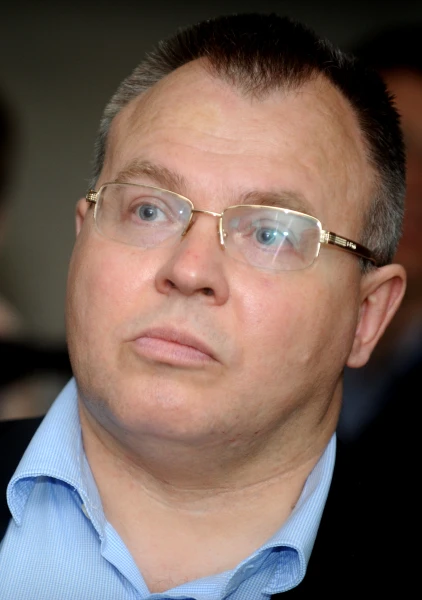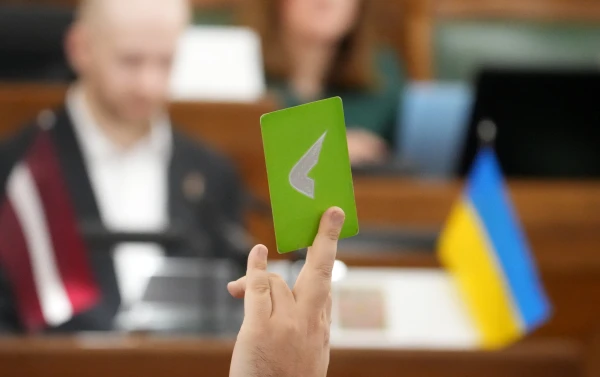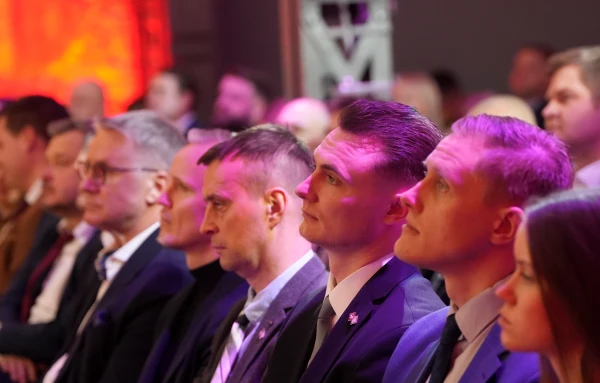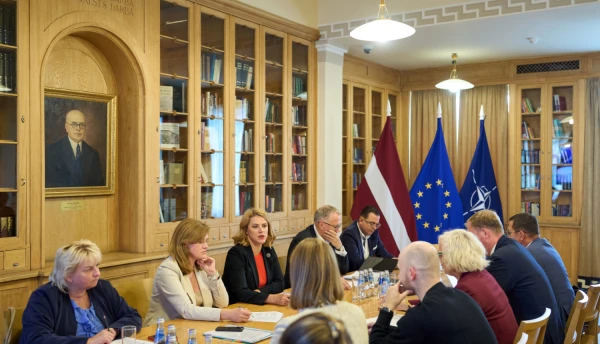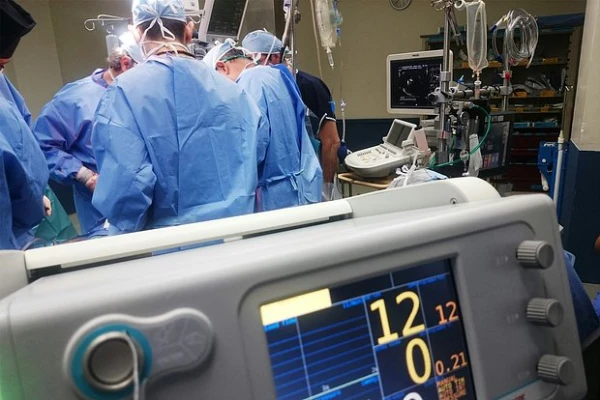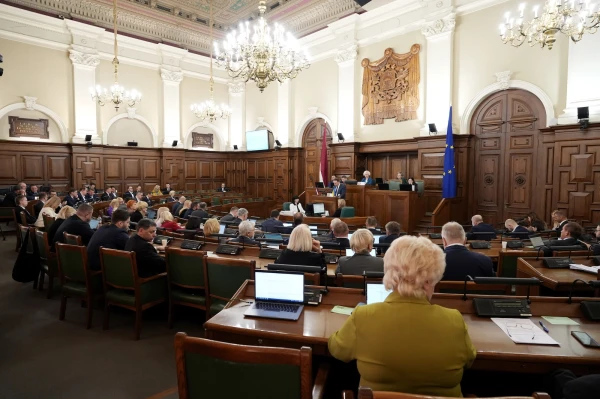
After the presentation of the government's report to the Saeima on the efforts made to preserve the state language, several politicians emphasized the need to protect the Latvian language and use it more actively in everyday life, writes LETA.
The Speaker of the Saeima, Daiga Mierina (SCP), expressed the opinion that language is the foundation for the existence of a state. "The way our language is reflects the nature of our state," Mierina said.
She called for careful treatment of the Latvian language: "We all need to work on learning the Latvian language at all levels," she noted, adding that care for the language starts with the family, as a significant amount of content is currently consumed in foreign languages.
Mierina pointed out that more and more young people prefer to communicate in English. Although, according to her, the attitude of young people towards the Latvian language remains positive, anglicisms such as "heitot" (to subject to hostility) and "vaibot" (to be on the wave) are increasingly polluting the language.
She emphasized the need to raise the prestige of the state language, indicating that, for example, reading books contributes to its development and preservation.
Agnese Krasta ("New Unity") noted that the debates about language should be aimed at joint efforts to strengthen the status of the Latvian language, rather than becoming an element of political disagreements.
She urged not to "throw ashes on one's head," as significant progress has been made in recent years. Krasta reminded that the Saeima has adopted a number of laws strengthening the state language in various areas of society — the transition to education solely in the state language in general educational institutions, the requirement to use the state language in paid election campaigning, as well as providing assistance and consultations to patients in the medical field in Latvian.
At the same time, she stated that for the effective implementation of these norms, the participation of the entire society is necessary. Krasta pointed out that one of the real threats to the Latvian language is the everyday language practice of Latvians themselves — how they use the language in daily life. In her opinion, adapting to another language is dangerous both in the short and long term.
The information report of the Cabinet of Ministers to the Saeima on the measures taken and planned for the preservation, protection, development, and strengthening of the influence of the state language outlines tasks in the legal, research, and educational fields, as well as in the area of public participation, reflected in the action plan of the state language policy for 2025–2027.
The systematic and consistent implementation of language policy in all areas of public life should occur in close cooperation with the state administration, with its effectiveness depending on the knowledge, understanding, and language behavior of officials, which in turn influences the behavior and opinions of society.
The report indicates that attention should be paid to the compliance with regulations affecting language policy, as well as educating the public on issues of language status and hierarchy.
There is a need to assess the impact of regulations on the state language — similar to assessing their impact on the state budget — and to review existing legislation to identify provisions that do not comply with the Law on the State Language. It is also proposed to strengthen control over the enforcement of laws.
For an objective assessment of the language situation, it is necessary to regularly collect data on the native language of residents of Latvia, the level of proficiency in the state language, and language behavior.
The report emphasizes that one of the pressing issues is the lack of regular, comprehensive data collection on the language skills of the population. Currently, regular surveys by the Central Statistical Bureau cover only 1–2% of residents and do not allow for tracking dynamics.
It is also important to consistently implement the transition to education in the state language and ensure the availability and improvement of resources for learning the Latvian language — educational and methodological materials for students, teachers, and parents. Although the transition process will be completed by the end of the 2025/2026 academic year, support for participants in this process will be needed in the future, especially considering the introduction of a unified school system and migration processes.
Particular attention needs to be paid to ensuring quality learning of the Latvian language as a foreign language and as a language of ethnic heritage both in Latvia and abroad — including the diaspora and re-emigrants. This contributes to improving language proficiency, expanding its use, and resilience in competition with prestigious world languages.
The viability of the Latvian language in the future is closely linked to its presence in digital technologies, including artificial intelligence-based solutions. The language must be represented in technologies not only formally but also substantively — taking into account the cultural aspect. Insufficient availability of language data for research hinders the development and implementation of modern IT solutions and limits the presence of the Latvian language in the digital space, the report notes.
To change the language habits of society, activities are needed to foster an inclusive attitude — encouraging native Latvian speakers to use it even when communicating with those who are just beginning to learn it. The role of teachers is particularly important in this process. The report emphasizes the need to strengthen the understanding of the significance of language as a foundation of identity and a state value.
